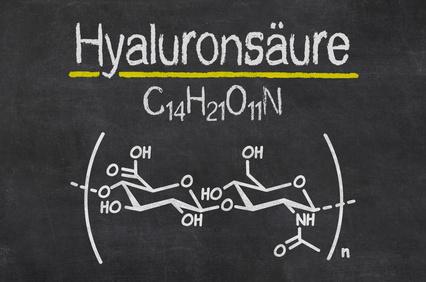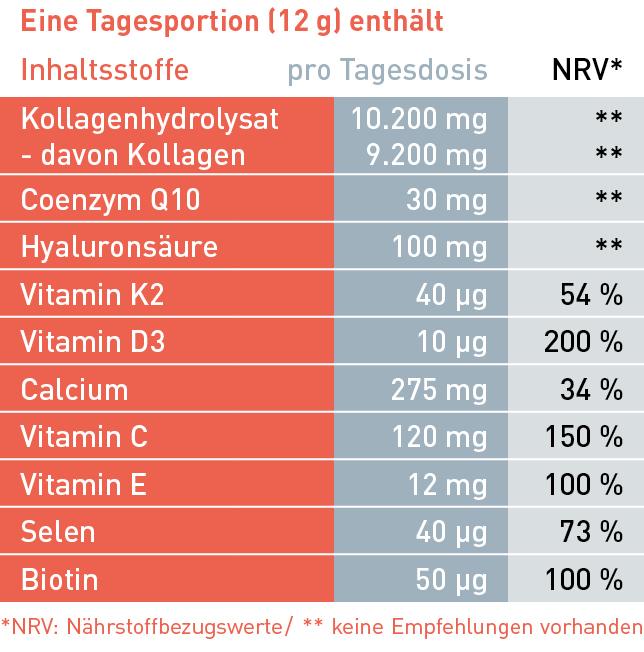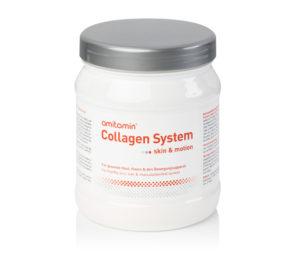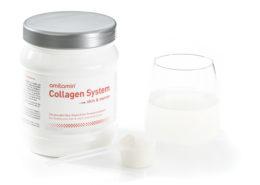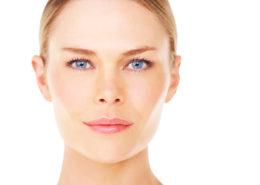Collagen (internationally spelled “collagen”) is a structural protein that makes up around 30% of our protein content. Proteins are long chains of linked amino acids. The amino acids glycine, proline and hydroxyproline are the main components of collagen. There are a total of 28 different collagen fibers in humans (28 isoforms, types 1 to 28). Collagen fibres are characterized by a very high tensile strength. Our body therefore mainly uses collagen fibers where tensile strength is important:
- in the skin to restore elasticity,
- in ligaments and tendons that hold our joints and bones together,
- in the cartilage, e.g. articular cartilage, to ensure the strength of the structure.
Collagen is also found in large quantities in bones, blood vessels, our teeth and organs, where it forms the structure.
Collagen in the skin
Collagen forms the basic structure of our skin. Different collagen fibers cross-link with each other and stretch the skin. At a young age, this collagen structure of the skin is very firm and yet flexible. The collagen fibers act like a three-dimensional network of rubber bands. This collagen structure contains, among other things, our moisture depot, which is bound by hyaluronic acid. Sunlight, age and chemical influences (i.e. oxidative stress) cause the skin to lose collagen overall and the collagen fibers become brittle. To protect themselves, the cells need antioxidants. The most important antioxidants are vitamin E (fat-soluble antioxidant) and vitamin C (water-soluble antioxidant). Selenium is one of the most important antioxidant trace elements. The body also needs vitamin C to repair collagen fibers. It has been proven to contribute to a healthy collagen metabolism. Biotin is also important for healthy, beautiful skin.
Which is better – collagen or hyaluronic acid?
Some people wonder what is more important in the skin, collagen or hyaluronic acid? The answer is quite simple: both. Both collagen and hyaluronic acid are responsible for ensuring that the skin’s structure is firm, elastic and moist. If the skin lacks either of these, wrinkles form and the skin becomes dry and brittle. If the skin lacks collagen or hyaluronic acid due to limited collagen production, this not only has an optical effect. The immune system also suffers, as our skin is the most important part of our immune system. Over 80% of all viruses and bacteria are caught in the skin. To make a healthy contribution to collagen metabolism and the immune system, amitamin® Collagen System also contains vitamin C.
Tip: If you want to supplement your diet with collagen or hyaluronic acid, you don’t have to do without one or the other. amitamin® Collagen System is a high-quality collagen hydrolyzate powder that also contains hyaluronic acid. It also contains vitamin C, which is important for collagen synthesis, and other important antioxidants for cell protection (vitamin C, vitamin E, selenium). It also contains coenzyme Q10, which is so important for energy production in the cells.



